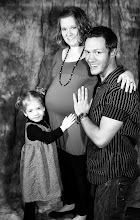After unsuccessfully trying to conceive with your own eggs via traditional IVF, you may have been pointed in the direction of egg donation.
Did you know donor eggs are a popular choice for women trying to get pregnant through IVF, especially over the age of 45? Ultimately, donated eggs are a viable option for many couples struggling with an infertility diagnosis. While it might not be your first choice to solve your infertility, it’s definitely worth researching when you’re trying to conceive.
Ready to learn more about the egg donation process?
Read on below as we explore what goes into finding a donor, how you’ll feel a connection to your child, and everything in between.
How Do I Find a Donor?
Whether you’re using someone you know or selecting a donor from a database, there are many steps involved, including legal aspects and preparation of the eggs and your uterus. This isn’t something you can, or will want to, rush. Give yourself plenty of time to find your ideal donor.
Is it better to find a family member or friend to be your donor?
For some, the answer is a resounding “yes!” Personally knowing where their baby’s genes come from and having that connection plays a huge part in their egg donation experience. However, it’s important to bear in mind whether any relationship complications may arise in the future, such as if your child and/or donor want to connect. This possibility and other factors are why many choose to use frozen donor egg banks.
With an extensive database of donors (who have already been through a rigorous screening process), you can take your time as you search through these potential candidates for your primary choice. From specific details about their physical appearance, e.g. their hair or eye color, to personal achievements such as academic accolades and career choices, you’re likely to feel as though you already know your candidate after reading their details. This provides you with the first connection to your child – you have chosen half of their genes.
What Can I Expect in the Egg Transferral?
Once you’re ready, you’ll begin taking a number of hormone-based drugs to prepare your uterus for implantation.
How long does this take?
It depends on whether you’re using fresh or frozen donor eggs.
Frozen donor eggs are ready and waiting for implantation, while fresh donor eggs require synchronizing yours and the donor’s cycles so the transferral can take place. This is why fresh donor eggs are more expensive and time consuming.
When it comes to fertilization, both fresh and frozen are the same – and are just like traditional IVF methods. Once fertilized with your partner’s sperm, the eggs are placed in an incubator for 3-5 days. After this time, they’re classed as an “embryo” and one or two are transferred to your uterus.
You’re able to take a pregnancy test two weeks after the transfer to confirm the procedure was successful.
Will It Be “My” Baby?
While egg donation sounds like a feasible avenue in your infertility journey, you may still have one primary concern: am I going to feel connected to my baby? This is understandable. After all, for as long as you can remember, you’ve been dreaming of conceiving, carrying, and giving birth to your own child.
But let’s think about that for a moment.
You’ll still carry and give birth to your child – it’s just the conception of your child that differs from traditional methods. Nevertheless, you’ll still have absolute control throughout the process. As we’ve discussed, you’ll choose your egg donor, which gives you the chance to shape your child’s future from the start. Your baby will also share your partner’s genes, which you’ll feel a bond with. For many, it’s the process of nurturing a baby as they grow in their womb which provides the first (and most unbreakable) bond with their child.
Don’t forget, too – no woman can guarantee their child will possess their traits and characteristics. Genes are never failsafe, regardless of whether they’re coming from your own eggs or someone else’s.



Comments